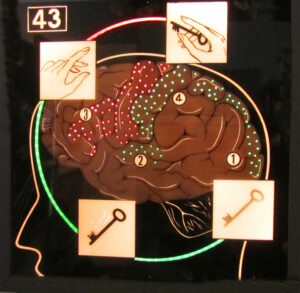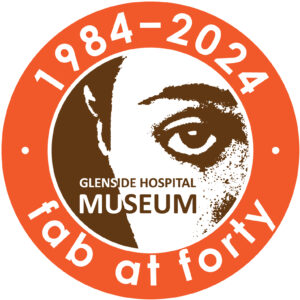
In 1861, Bristol’s Lunatic Asylum opened its doors and 164 pauper patients transferred from the workhouse. What treatment did this new state-of-the-art hospital provide, and how did it evolve over the next 130 years until closing in 1994? Stella Mann of the Glenside Hospital Museum, housed in the old asylum chapel, will talk about the evolution of Bristol’s mental health provision from the Victorian age to the present day. History can be discovered through many different routes. Every object and picture in the collection tells a story and uncovering these stories is endlessly fascinating. This talk will illustrate how a single object or photograph can take a person on a journey back in time. How historical objects and original papers, when examined closely, can reveal a pathway to understanding not just the past but improving the present.
Glenside Hospital Museum celebrates its 40th birthday this year and yet is under threat as plans to redevelop the old Asylum site will leave it homeless. It is a fascinating place sustained by many dedicated local people who have volunteered their time and energy to fashion a museum of national importance on the development of medical care for the most vulnerable. The history described is drawn from a collection of objects often saved from the skip: photographs, personal accounts, and organisational records. The displays, exhibitions, and events bring to life four important Bristol institutions: the state-of-the-art Victorian hospital for the mentally ill 1861-1994, the military orthopaedic Beaufort War Hospital 1915-1919, Stoke Park Colony of hospitals for people with learning disabilities (1909-2000), and the Burden Neurological Trust and Institute (1933-present).


Event details
Date: , 2024
Time: to
Location: Studio 1&2 Level 1
Venue: M Shed, BS1 4RN
Price: Free
With: Stella Mann




